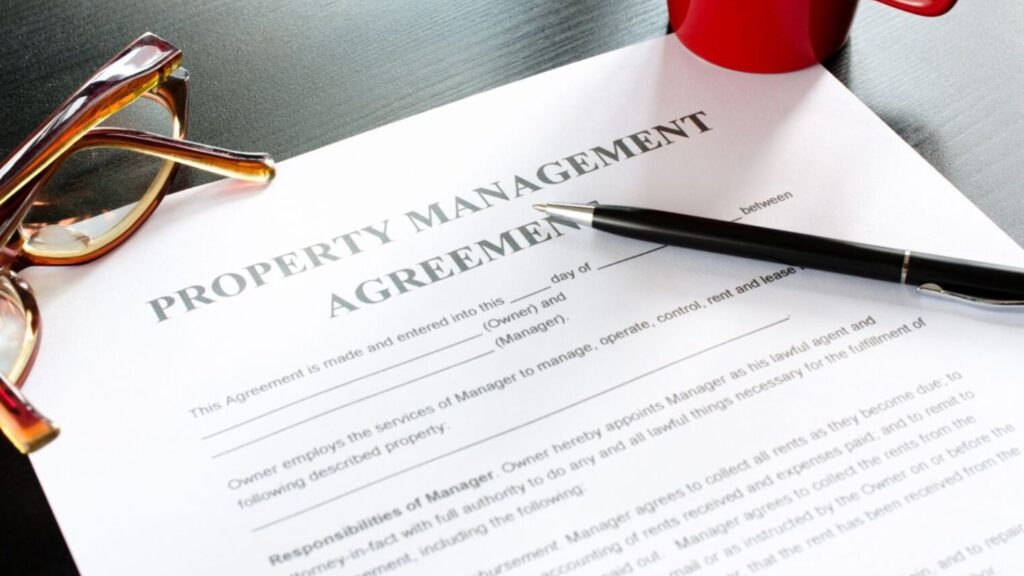Why Property Managers Need to Keep Record of Important Documents?

Property managers need to keep records of important documents to avoid legal troubles, operate efficiently, and build better tenant relationships. Without proper documentation, managers face compliance issues, operational delays, and legal disputes. This article uncovers why maintaining detailed records is crucial and how it can benefit your property management business.
Key Takeaways
- Proper record-keeping is essential for legal compliance, operational efficiency, and enhancing tenant relationships in property management.
- Property managers must maintain essential documents, such as lease agreements, tenant files, maintenance logs, and financial records, to ensure smooth operations.
- Implementing best practices for organizing records, including structured filing systems and utilizing property management software, can significantly improve efficiency and decision-making.
The Importance of Record Keeping for Property Managers

Maintaining meticulous records is crucial for the prosperity of property management businesses. This practice maintains compliance with legal standards, enhances the value of assets, and protects against potential litigation. Without essential compliance documents during an audit, a property manager might encounter expensive legal troubles and operational hiccups. Diligent record-keeping not only fortifies your business’s defense mechanisms but also elevates its reputation and caliber of service.
Keeping precise documentation serves as proof of upholding agreements and adhering to safety regulations while diminishing exposure to legal predicaments. Insufficient paperwork can lead to operational snags and inflated costs that often stem from delayed repairs or drawn-out litigious confrontations. A common challenge faced by many property managers is bureaucratic inefficiency, which can be alleviated through diligent record-keeping.
The essence of proficient record-keeping lies in its capacity to refine service quality, nurture positive tenant relationships, and anchor enduring success within the industry. Thorough records enable well-grounded decision-making processes by helping pinpoint patterns, allowing strategic decisions—a significant advantage over competitors within the bustling rental sector.
It’s imperative for property managers to manage accurate documents consistently. Doing so streamlines day-to-day activities while compiling invaluable historical data for future use. Committing resources toward sound practices in maintaining documentation equips property managers with robust protection measures for their enterprises whilst delivering superior services to tenants.
Essential Documents Property Managers Must Keep

In the property management business, it is essential for property managers to systematically maintain an array of records such as financial documentation, tenant files, lease contracts, and logs of maintenance. This meticulous record-keeping plays a pivotal role in administering rental properties with proficiency and guarantees that crucial data can be accessed promptly when required.
Aspects of document management within this field cover diverse categories. From executing lease agreements to documenting repair and upkeep activities, every type serves an indispensable function in overseeing rental units effectively. Subsequent sections will delve into these distinct groups more deeply to elucidate their importance for maintaining operational excellence in your property management enterprise.
Lease Agreements and Amendments
Lease agreements serve as essential legal documents that safeguard both landlords and tenants by delineating their respective rights and obligations within the framework of a lease, as well as providing for resolution in instances of lease violations.
An effectively structured lease should encompass the following:
- The amount of rent due
- Duration of tenancy
- Terms regarding security deposits
- Obligations pertaining to property maintenance
- Regulations applicable to tenant conduct
Such contracts are fundamental in reducing confusion and mitigating potential legal disputes, thereby facilitating harmonious interactions between landlord and tenant.
The processes involved in renewing leases or making modifications also have significant implications for the management of properties. Consistently updated leases contribute to lower vacancy rates by avoiding the necessity for new occupants constantly. They keep current residents informed about alterations in their leasing conditions, which can enhance relationships with tenants while securing a consistent source of rental income.
For property managers, having meticulously maintained records concerning these agreements, along with any amendments, is instrumental for effective administration over residential units and steering clear of possible legal complications.
Tenant Files and Screening Records
Maintaining comprehensive records within tenant files is vital for both legal compliance and effective property management. These files should encompass tenant applications, screening reports, and documentation from move-in inspections to guarantee a complete record of tenant history. This practice enables property managers to administer rental properties with greater efficiency while promoting clear communication.
A well-documented record of interactions with tenants aids in cultivating stronger relationships and preventing miscommunications. Detailed tenant files provide property managers with the essential information required for proficient oversight of their rental units. Such meticulous organization not only increases satisfaction among tenants but also safeguards the business side of property management from potential legal conflicts.
Maintenance Requests and Logs
Maintaining comprehensive records of repairs and maintenance requests is vital for the effective upkeep of rental properties. These logs not only facilitate the planning of imminent fixes but also pinpoint patterns in recurring problems, leading to more efficient property management.
By documenting every repair and service request meticulously, property managers are better equipped to organize and prioritize future work, resulting in enhanced living conditions within their rental properties.
Financial Records
Maintaining precise financial records is essential for monitoring rent payments and expenses, which supports accurate financial reporting and compliance with tax requirements. Property owners should meticulously record elements such as monthly budgets, expenditure tracking, tax submissions, and compensation provided to contractors. This practice promotes informed property management decisions by ensuring all fiscal transactions are properly recorded.
It’s crucial that these financial documents encompass details on rental income received as well as any associated costs or invoices incurred. Having comprehensive property documentation enables those who own properties to make educated choices regarding potential sales actions, improvements to the asset, or investments into their holdings.
Well-kept documentation eases the process of preparing taxes while also providing verifiable evidence of revenue streams and outlays in case an audit arises. It allows property owners a clear insight into the profitability deriving from their rental units. Effective recording practices mitigate errors within bookkeeping activities, thereby safeguarding the fiscal integrity of one’s investment in real estate.
Legal Documents and Compliance Records
Maintaining meticulous and precise records is paramount for property managers to satisfy regulatory standards and safeguard against legal altercations. Such accuracy in documentation assists in abiding by the various municipal and state mandates, conforming meticulously to laws governing landlord-tenant relationships. These documents play a critical role as they offer indispensable evidence should disputes arise with tenants or contractors.
It’s equally important for property management businesses to keep comprehensive records when it comes time to submit insurance claims pertaining to damages or events on the property. By keeping extensive legal and compliance documents, those managing properties can be ready at all times for any potential legalities or regulations that might come up. This readiness does more than just protect the business. It bolsters its reputation and elevates the standard of service provided.
Benefits of Proper Document Management

Efficient management of documents can yield a multitude of advantages for property managers. It not only augments the effectiveness of operations through simplified retrieval of vital information but also bolsters decision-making capabilities by ensuring prompt access to accurate records.
Comprehensive documentation is pivotal in nurturing improved relationships with tenants as it fosters an atmosphere of openness and confidence between parties. The subsequent sections will delve into these benefits more comprehensively.
Enhanced Operational Efficiency
Efficient property management is bolstered by well-organized systems that streamline the retrieval of crucial documents. Keeping meticulous records, including those related to repairs, inspections, and preventative measures, plays a vital role in managing properties adeptly. Property managers can preventively tackle issues and effectively handle repeated maintenance concerns by systematically documenting both requests for maintenance and their subsequent logs.
An orderly system dedicated to record-keeping facilitates the swift acquisition of files as well as their proper archiving. It’s important during annual evaluations to reassess the organization of these records while accumulating necessary documents pertinent to tax preparation.
Implementing property management software provides an avenue for significant time conservation with regard to handling such records. This enables property managers to have more bandwidth towards prioritizing tasks deemed essential within their scope of responsibilities.
Improved Decision-Making
Efficient record-keeping is essential for property managers, as it supports them in making choices based on solid data. This practice benefits management tactics and informs decisions about maintenance and interactions with tenants.
Such informed decision-making bolsters the proficiency of property management activities overall.
Better Tenant Relationships
Meticulous record-keeping enhances transparency and promotes trust by enabling clear and efficient communication between property managers and tenants. By having well-structured records, property managers can easily disseminate information like statements and notices or promptly respond to specific tenant inquiries. Such consistency in openness bolsters tenant satisfaction, leading to stronger relationships with those living in the properties.
Property management benefits substantially from a synergy of comprehensive record maintenance and adept communication tactics. Property managers who are diligent about documenting details while ensuring straightforward dialogue create an atmosphere that nurtures positive interactions with tenants. This approach is instrumental in cultivating happy tenants, which is essential for prosperous property management outcomes.
Best Practices for Organizing Property Management Records

Essential for the efficient and effective functioning of property management operations, best practices in organizing property management records cannot be understated. A well-structured document management system not only improves performance but also aids in cost reduction.
We will delve into actionable guidance on establishing a coherent filing system, ensuring property records are consistently updated and assessed, and the strategic employment of property management software in subsequent sections.
Implementing a Structured Filing System
Efficient record-keeping streamlines the process for property managers to find specific documents, freeing up their time to concentrate on critical responsibilities. Establishing a properly labeled filing system is key to developing an organized framework necessary for the systematic management of property-related documents.
Sorting and arranging documents systematically prior to archiving them facilitates their swift retrieval and safeguards against deterioration or misplacement. A well-organized filing strategy, which can be either physical or digital, enables quick and effortless access when there’s a need to locate certain records pertaining to the management of properties.
Regularly Updating and Reviewing Records
It is crucial for property managers to regularly update their records to comply with retention legislation and avoid any legal issues. By conducting scheduled checks, they ensure that documents such as rental unit applications, leases, and additional tenant-related paperwork are up-to-date and fully detailed.
The secure storage of financial documents, including bank statements, invoices, and receipts, is imperative for adhering to tax laws and preserving precise financial records. Frequent updates, along with reviews, contribute to the organization’s filing system accuracy while addressing discrepancies that may arise.
Utilizing Property Management Software
Software for property management streamlines the process of maintaining records and enhances productivity. Through a system dedicated to managing documents, critical files can be retrieved swiftly, which conserves time. Such software consolidates document storage, allowing for simplified access and improved sorting capabilities.
Electronic versions of lease agreements and other vital documents act as safety nets should physical copies go missing. The cloud provides a secure repository for housing all pertinent property management paperwork.
Applications designed for property management facilitate convenient filing, structuring, and modification of every document related to property management tasks, thereby boosting efficiency across operations.
How OnSite Property Solutions Can Help

OnSite Property Solutions excels in connecting property management employers with ideal candidates, streamlining their recruitment process. The firm delivers diverse staffing solutions that range from temporary and temp-to-hire to direct-hire positions across various roles within property management. A comprehensive screening procedure is carried out to ensure high-quality candidate placements, aiding property managers in fulfilling their hiring needs efficiently.
With over half a century of collective experience, the expertise and customer service provided by OnSite Property Solutions have established them as distinguished players in the property management staffing sector. Customers commend the organization for its forthrightness, professionalism, swift responses, commitment to excellence in client care, and personal touch.
Anticipating fluctuating demands during busy periods for those managing properties is an area where OnSite particularly shines. They maintain an extensive reserve of proficient talent ready to assist when peak season arrives.
Summary
Property managers who rigorously maintain crucial documents, including financial records, lease agreements, legal documents, tenant files, and maintenance logs, can not only comply with regulations but also gain a competitive edge in the realm of property management. By employing systematic filing protocols and updating these files consistently, as well as utilizing specialized property management software tools to keep their records precise and readily available when needed—property managers optimize operational effectiveness, leading to more insightful decision-making. This meticulous attention to document organization aids in cultivating stronger relationships with tenants. OnSite Property Solutions, a leading firm in the industry, offers additional support that enables property managers to refine their processes. They specialize in connecting employers with Property Manager jobs in Atlanta, providing a comprehensive screening process to ensure high-quality candidate placements. This allows property managers to concentrate on expanding their rental business effectively.
Frequently Asked Questions
What is most important to a property manager?
Effective communication is essential for property managers, along with staying current on industry trends and maintaining a positive attitude. Developing a systematic approach to tenant selection and having clear long-term goals are also critical for success.
Why is record-keeping essential for property managers?
Record-keeping is essential for property managers as it ensures compliance, reduces legal risks, and enhances operational efficiency.
This practice ultimately leads to improved tenant relationships and a smoother management process.
What types of documents should property managers keep?
Property managers should maintain lease agreements, tenant files, maintenance logs, financial records, and legal documents to ensure proper management and compliance. Keeping these documents organized will facilitate efficient operations and protect against potential disputes.
How can property management software help with record-keeping?
Property management software improves record-keeping by centralizing document storage and enabling quick retrieval, which enhances overall organizational efficiency.
This streamlined approach ensures that essential documents are easily accessible when needed.
What are the benefits of maintaining detailed financial records?
Maintaining detailed financial records is essential for tracking expenses, ensuring tax compliance, and facilitating informed financial decisions.
This practice ultimately enhances financial oversight and efficiency.

